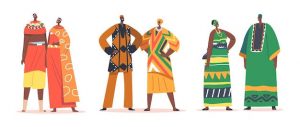In line with the objective of the Central Bank of Nigeria (CBN) to ensure that 95 percent of eligible Nigerians have access to financial services by 2024, CHIMA NWOKOJI in this report, takes a look at how First Bank of Nigeria Limited is driving financial inclusion through its over 37,000 Firstmonie Agent Network, present in 99 per cent of the 774 Local Government Areas in Nigeria.
A recent report by McKinsey Global Institute on the potential of Digital Financial Services to increase access to finance in emerging economies has revealed that rapidly spreading digital technologies now offer an opportunity to provide financial services at much lower cost, and therefore profitably, boosting financial inclusion and enabling large productivity gains across the economy.
The study titled “Digital Finance for All: Powering Inclusive Growth in Emerging Economies”, sought to quantify the economic impact of adopting digital financial services. Some of which include: Potential to provide access to financial services for 1.6 billion people in emerging economies, more than half of which will be women.
It also noted that the impact includes the potential to boost annual Gross Domestic Product (GDP) of all emerging economies by $3.7 trillion by 2025; that lower-income countries such as Ethiopia, India, and Nigeria have the largest potential, with the opportunity to add 10 to 12 percent to their GDP.
The opportunity to grow GDP is in line with Firstbank’s banking history and future, which is centered around development and economic growth.
The Chief Executive Officer, FirstBank, Dr. Adesola Adeduntan corroborated this when he said in an interview that, “A key part of our history and future is about development and economic growth. And the key strength of our franchise is our ability to look at gaps in the society, develop products and services that addresses that gap. So,as an integral part of our strategy, we believe that by significantly working with the central bank to improve the financial inclusion index of the country, we would as First Bank, be assisting this country to address poverty.”
CBN’s Efforts
Conscious that over 40 percent of eligible Nigerians in 2015 lacked access to financial services, the CBN embarked on a couple of steps to improve access to finance.
Specifically, through initiatives such as the Shared Agent Network Facility (SANEF) and launch of the policy on Payment Service Banks, which enables non-banks to provide limited financial services, the CBN sought to encourage the use of technological tools in improving access to finance for people who live in underserved parts of the country.
According to Mr. Godwin Emefiele the CBN Governor, “We also set up a payment services management department solely dedicated to enabling the build-up of a robust payment systems infrastructure, while seeking to contain the risk to the financial system that could emerge from the use of digital channels.
“As a result of our efforts, the total volume of retail electronic payments has witnessed a threefold increase over the last five years. New financial access points are being created in parts of the North East and North West as a result of measures deployed by the Central Bank to extend financial services to the underserved in our rural communities.”
In June this year, Mr. Godwin Emefiele the CBN Governor, while outlining the vision and policy thrust of the bank over the next five years, said that the banking sector regulator intends to broaden access to financial services to individuals in underserved parts of the country.
He added that, “Our ultimate objective is to ensure that 95 percent of eligible Nigerians have access to financial services by 2024.” The apex bank has in line with this, set up the enabling superstructure that is helping operators to seamlessly turn this policy thrust into achievable successes.
The CBN has set a target of 80 per cent financial inclusion by 2020. Already, the Enhancing Financial Innovation and Access (EFInA), result of its last year survey figures showed that 63.6 per cent of the adult population now has access to financial services and only 36.6 per cent are financially excluded.
Achieving the 80 per cent financial inclusion target will require the support of commercial banks and use of technology. First Bank of Nigeria Limited is one of the financial institutions that have taken steps to make the target a reality by deploying technology to its operations by way of Agent Banking Network.
In the light of the above, one of the major players in Nigeria’s financial system, First Bank is playing a leading role at promoting financial inclusion in the country. Through its flagship product Pocketmoni, it is giving its agents and others an opportunity to harvest both active and passive/residual Income. Active income is an income made from a person’s sweat/effort. Passive/residual income is income made, without necessarily being physically present, even while sleeping.
FirstBank and Firstmonie Agents
Speaking during the Firstmonie Agent Banking national award ceremony, recently held in Lagos, the Chief Executive Officer, FirstBank said Firstmonie agent network is a bespoke channel through which the bank expresses its unalloyed commitment and passion to promote opportunities and access to financial services by every Nigerian, especially within the low-income segment.
The Firstmonie Agent Banking awards had the Bank – FirstBank – reward 37 leading Agents that have promoted financial inclusion in the country. The sum of N250,000 was won at the State level by 31 Agents; N1,000,000.00 at the Regional level by 5 Agents and the grand prize being the sum of N2,500,000.00 at the National Level.
He also stated that the initiative has witnessed several changes in the operating structure and value proposition, adding that in December 2017, the bank ran a pilot test with over 400,000 transactions processed and following the success of the first run, it re-launched in 2018.
Adeduntan explained that with the initiative, the gap between the tech savvy and the low literacy clients has been breached as Firstmonie agent network represents the convenient and comfortable alternative for customers that are unacquainted with sophisticated digital channels.
He further stated that Firstbank has opened more than 500,000 accounts, processed over a trillion transactions through Firstmonie. It has empowered more than 8,000 women who are in turn serving customers.
“When you look at what we have done in all the geopolitical zones of the country, you will discover that we have built up a significant number of Firstmonie agent locations. We believe there is still a lot to be done, not only in Nigeria but Africa as whole,” Adeduntan stated.
Deputy Managing Director, First Bank of Nigeria Limited, Mr. Francis Shobo, noted that the agents are the most critical part of the banking ecosystem because they take deposits, make payments and open accounts, provide transfers and sell airtime at locations with little or no access to financial services.
Shobo did not forget the efforts of Godwin Emefiele for the role the apex bank has played, stating that the CBN has made a lot of changes in regulation around agency banking, stating that “they have allowed the programme to scale as much as it has scaled.”
While recognizing the support of a Philanthropic Organization Bill and Melinda Gates Foundation, Group Executive, e-Business and Retail Products, FirstBank, Chuma Ezirim said: “FirstBank is focused on building a quality agent network in the country by deploying a robust risk framework and the right product mix to ensure viability and security of the network, aimed at deepening financial services access, especially in the un-served and underserved segments of our market. We, therefore, encourage individuals in these local communities to look out for the Firstmonie agents’ locations closest to them.We are trying to make those agents the centre of our financial ecosystem in the country.
“We are trying to create a financial ecosystem that allows easy transaction wherever you are in Nigeria,” he added.
How Firstmonie works
Firstmonie started in 2019 when it was a concept in the bank. Its Agent is a unique channel that seeks to solve transaction problems in rural and semi-urban locations across the country. Customers are able to open accounts, deposit cash into any account, withdraw cash from any bank account, buy airtime, pay bills, and do so much more
Feedback from some of the agents across Nigeria shows that the product is having positive impact on their businesses and general commerce. Mohammed Abubakar Tatari from and ASlebosu Adeleye Steven are among the agents. During Firstbank’s award ceremony to reward top performing agents, their feedback gives credence to the fact that Digital Financial Services in Nigeria (DFS) transcend physical barriers through the use of ubiquitous electronic channels to particularly reach underserved, rural areas.
For example, Mr. Adeleye said there is no bank in Ayetoro, a riverine community in Ilaje Local Government Area of Ondo State. But Firstmonie has bridged that gap and impacted positively on the community. The people according to him, are being financially included.
“Cases of armed robbery he observed, have also reduced. Their businesses have received a boost due to seamless transactions. They have cultivated savings habit because they now have access to banking services,” said Adeleye.
Culled from Tribune
https://tribuneonlineng.com/firstbank-expanding-the-borderlinof-financial-inclusion


